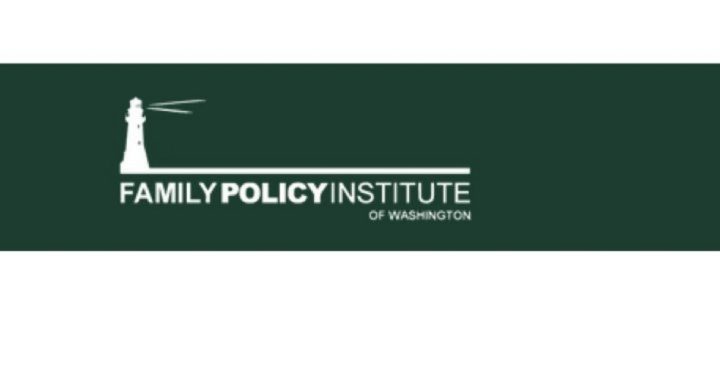
Earlier this month, The New American reported on the adoption of controversial new learning standards regarding gender for students in grades K-12 in the state of Washington. These health and physical education learning standards were quietly adopted by the Office of Superintendent of Public Instruction (OSPI) on March 25 without issuance of public notice or press release. Because the standards had been adopted in secret, they only recently came to the attention of the Family Policy Institute of Washington (FPIW), which has pledged to fight the implementation of the standards.
OSPI’s standards rely on the notion that gender is a “social construct” influenced by culture, emotion, and behaviors that are deemed characteristic of a person’s biological sex. As such, the standards will teach students as young as kindergarten age about “self-identity,” which will focus on various ways one can express gender. The kindergarten curriculum will also include lessons on “safe and unwanted touch,” but it is not clear whether the lesson plans will include teaching consent.
The standards impact students in all grades. By the end of elementary school, students will be expected to understand the following:
• The range of gender roles and identity
• How ideas about gender roles are impacted by friends and family
• The impact that media, society and culture can have on one’s understanding of gender roles and identity
• How to identify trusted adults to whom students may pose questions regarding gender identity and sexual orientation
And by the time the students graduate from high school, they will have learned how to “distinguish between biological sex, gender identity, gender expression, and sexual orientation.”
But despite the controversial nature of the new standards, OSPI adopted them without alerting the public.
In an interview with The New American, FPIW Communications Director Zach Freeman explains, “Since there was no press release and no efforts were made to make these changes public, we’ve only just discovered the new standards in the last few weeks.”
Since then, however, the FPIW has launched a campaign to stop the implementation of the standards. It includes efforts to make parents in the state aware of the new standards with a video, wherein Freeman highlights the controversial components of some of the new standards and then declares, “Perhaps the worst part is that OSPI adopted these standards without properly notifying parents.”
The campaign also includes a petition that has garnered signatures from approximately 3,600 people thus far. Freeman indicates he expects that figure to reach 10,000, at which time it will be presented to OSPI and members of the Washington State Legislature.
The petition reads,
Kindergarten used to be a place for children to learn how to add, subtract, and read. Next year, Washington school children as young as five years old will instead be learning about gender expression, gender identity and fluidity, sexual orientation, and HIV prevention….
Parents should be concerned about whether these standards are age-appropriate, as well as whether the manner in which these topics will be taught may undermine their values.
Freeman further explained FPIW’s opposition to the new standards to The New American:
These represent a serious assault to parental rights. Parents should know what their kids are being taught, and what they’re learning should not conflict with the values they are being taught at home.
He added, “And using taxpayer dollars to violate parental rights is a serious issue.”
FPIW members have engaged in numerous conversations with the state superintendent’s office, where they say they’ve received “conflicting information.”
“The office told us that the standards are not mandatory, but merely serve as guidelines,” Freeman noted, adding, “But nowhere in the document does it state that these are merely recommendations.”
The FPIW believes that the document is deliberately vague in a number of areas, and that OSPI has engaged in doublespeak so as to give the impression that the recommendations are voluntary when they are in fact not.
“OSPI claims that it cannot mandate standards on school districts, but the schools have to use OSPI standards or else OSPI can reject the curriculum,” stated Freeman, adding, “That’s like Ford telling drivers they can select any color vehicle they’d like, but they must choose black.”
FPIW notes that even if the standards were simply recommendations, the question remains: Why are they recommending these guidelines, which represent a significant overreach?
“Even if the new standards documents were only recommended best practices and not mandates, the government is still recommending that taxpayer dollars be used to teach impressionable, elementary age children about gender identity and same-sex attraction,” Freeman explains in the FPIW video, adding, “Are you okay with that?”
Of particular concern is the method by which these standards were adopted, which reveals a complete lack of transparency that keeps parents in the dark about what their children are learning. OSPI claims that there was in fact a 30-day public comment period, though there has been no evidence of it. FPIW has filed a public records request to get that information.
Other concerns raised by the new standards are how they are going to be implemented.
When the Daily Caller asked whether students could fail a course if they refuse to accept the notion that gender identity is different from biological sex, OSPI Communications Manager Nathan Olson vaguely responded that it would be at the discretion of the district/school level. He added, “We don’t exactly know what a school would do if a student failed to complete an assignment because he/she opposed the materials being taught.”
FPIW has also questioned how teachers may be impacted by the new standards. “Are teachers going to be fired if they choose not to teach these standards in violation of their own beliefs? We simply do not know,” Freeman told The New American.
The good news, according to FPIW, is that the standards are not scheduled to be implemented until the 2017 school year, which means “we’ve caught it in enough time to act on it.”




